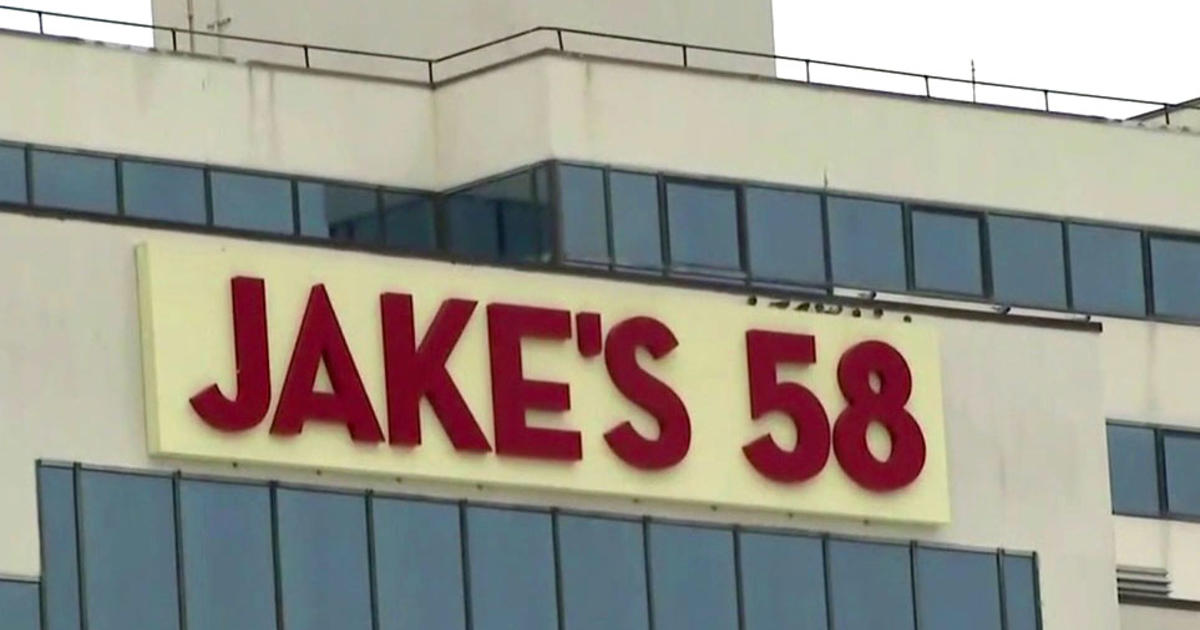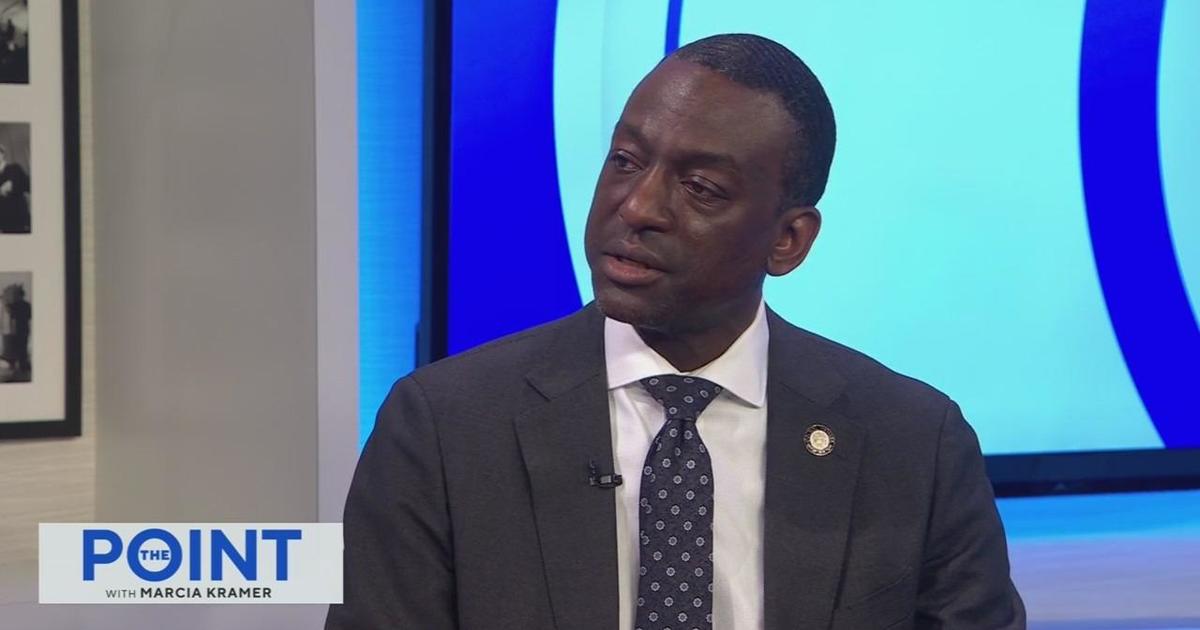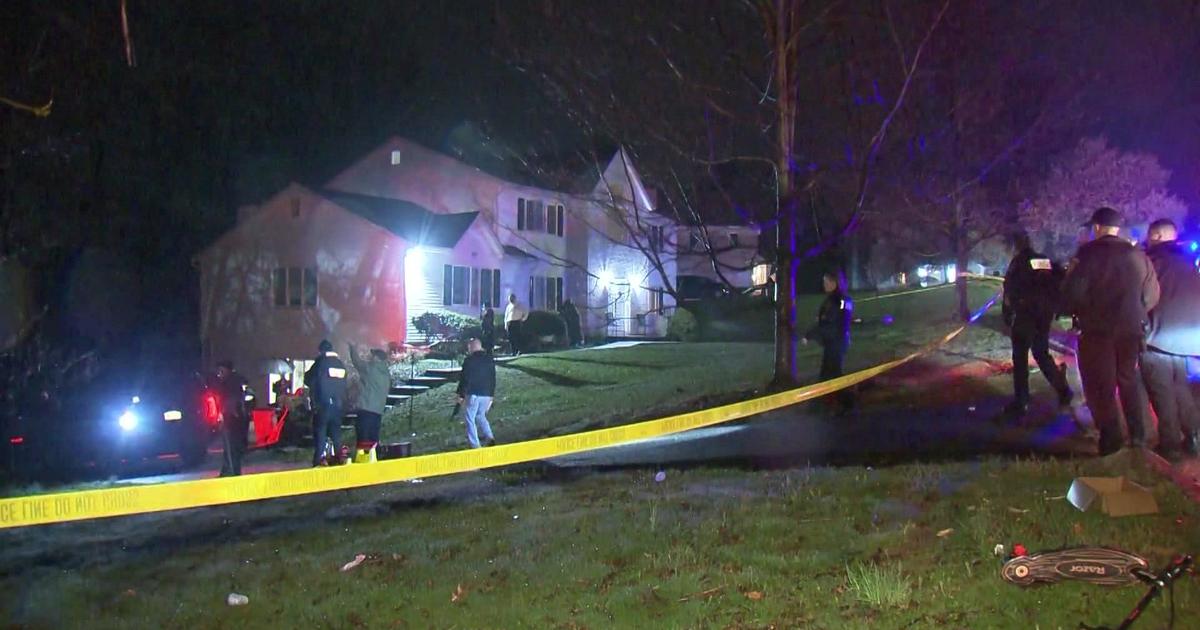Probe Finds Rikers Island Jail Guards Hired Despite Arrests, Gang Ties
NEW YORK (CBSNewYork/AP) -- One applicant to be a New York City correction officer had been fired from his last job as a security guard for stealing. Another admitted he had regularly socialized with gang members. Another had debts of more than $400,000.
Yet all those candidates and dozens like them were hired last year to be part of the force overseeing nearly 11,000 inmates on Rikers Island, according to a yearlong city probe of jail hiring practices released Thursday.
WEB EXTRA: Read The Full Report (pdf)
The probe found systemic problems with the Department of Correction hiring system, including no recruiting strategy for the past six years, that allowed an alarmingly high number of hires who had arrest records, gang ties or other red flags that are markers for corruption.
Probe Finds Rikers Island Jail Guards Were Hired Despite Arrests, Gang Ties
Department of Investigation Commissioner Mark Peters said the chronic problems of violence, smuggling and bribery that plague the city jails can all be traced to the character and qualifications of the employees.
"Unless you have consistently qualified correction officers, solving the other problems we care about is an almost insurmountable task,'' Peters said. "This is just a function of, for a decade, hirings and screenings and investigations being ignored.''
City investigators randomly pulled 153 application files of guards hired last year and found that 54 -- or 35 percent -- "presented significant red flags that should have either precluded their hiring outright or required further follow-up.''
The probe found 79 hired officers admitted having friends or family members who were inmates -- including one with nine relatives who had done time in Rikers. Ten new hires had been arrested more than once, and another 12 had been rejected by the significantly higher standards of the New York Police Department, including six for psychological reasons and one who failed a drug test.
In all, this group appeared "simply unfit for law enforcement -- whether working on the streets of New York City as police officers or in its jails,'' according to the report.
Jails Commissioner Joseph Ponte, who has pledged to reform the troubled correction department, said in a statement he was committed to "improving staff recruitment, training and retention'' and would implement many of the investigators' recommendations.
Those included automatically disqualifying applicants who had been fired from a public agency or had any felony convictions in the past five years.
Since the investigation, three of the problem hires have been fired for misconduct, including one who had an "unduly familiar'' relationship with an inmate later arrested in a murder-for-hire plot. Two of the hires resigned. Corrections officials wouldn't say what they will do with the rest.
Among other findings, there was no evidence applicants had been screened for gang affiliation, even though the jails' own intelligence officers rank it as the top threat to safety. It wasn't until after probe began that the jails began taking photos of applicants' tattoos to check for possible gang ties.
"If we are going to fix problems at Rikers that we are all committed to fixing -- such as violence, such as contraband smuggling, such as evidence tampering -- then the first step is to make sure that we have consistently excellent correction officers of the highest integrity," Peters told 1010 WINS.
Investigators deemed application investigators undertrained and found they failed to make meaningful background checks or run credit reports. They were also reliant on an applicant evaluation scale of 1 to 5 despite no clear understanding of whether a '1' or a '5' was the best score. Thus, the report found, 90 percent of applicants received a meaningless '3' on the scale.
In order to become a correction officer, eligible candidates who take a civil service exam are vetted by jail application investigators, who conduct background checks, psychological screenings and other evaluations. A jail official then recommends an applicant be accepted or rejected, but the deputy commissioner in charge of hiring can override that decision.
Investigators found seven instances when the deputy commissioner in charge of hiring reversed decisions to reject unqualified candidates. In one case, a reject who scored poorly on the psychological exam was hired after her file noted she was a family friend of Norman Seabrook, the powerful president of the union representing 9,000 city correction officers.
Seabrook denies knowing such a person.
"There's people that say they know the president of the United States, they know the mayor, they know the governor, that doesn't make it true," Seabrook told 1010 WINS. "I have no idea who the person is that you're talking about, but if you'd be able to supply me with the name I'd be able to tell you whether the person exists or doesn't exist."
Seabrook also said guards can be hired if they have been arrested in the past under certain conditions.
"If they have a certificate of release, in other words, if they'd been arrested before and they can show that the case has been disposed of and it's not a serious case then they are eligible to get the job," Seabrook said. "But that's the responsibility of the Department of Correction. I don't make those decisions."
Speaking to WCBS 880 about the revelations, Mayor Bill de Blasio emphasized that the report also took note of needed reforms that had already begun. He added that tighter screening is already being implemented.
"There's absolutely a sensitivity to the possibility that anyone might have a connection to a gang or any other type of activity, and there's a lot more screening being put in place to catch that," the mayor said. "But you also know all our law enforcement entities have an internal affairs-type capacity to look for any signs that may be needed to be addressed in terms of any kind of corruption, and certainly DOI does that as well all the time."
De Blasio also defended Ponte, noting that he inherited a situation with problems in the Correction Department.
"Commissioner Ponte has a national reputation as a reformer, and he came into a situation where those problems described in the report existed before he got there, and he immediately started putting in the checks and balances to address the problem."
Rikers has come under increased scrutiny in the past year by the media and investigators, including federal prosecutors who have sued the city to institute reforms to what it has called a "deep-seated culture of violence.''
You May Also Be Interested In These Stories:
(TM and © Copyright 2015 CBS Radio Inc. and its relevant subsidiaries. CBS RADIO and EYE Logo TM and Copyright 2015 CBS Broadcasting Inc. Used under license. All Rights Reserved. This material may not be published, broadcast, rewritten, or redistributed. The Associated Press contributed to this report.)



